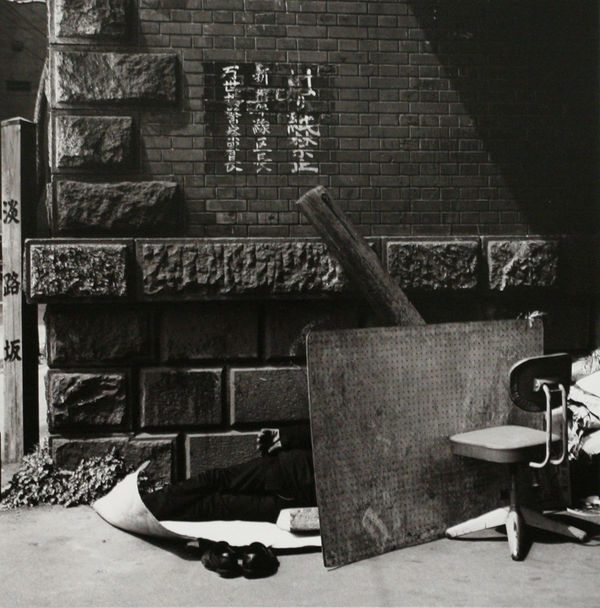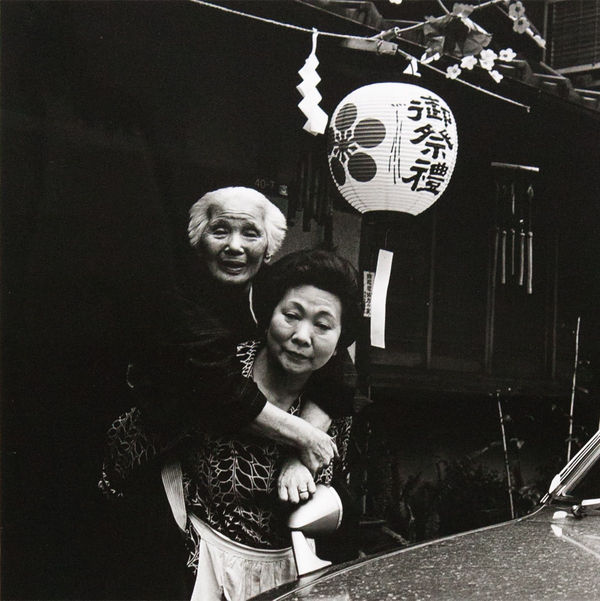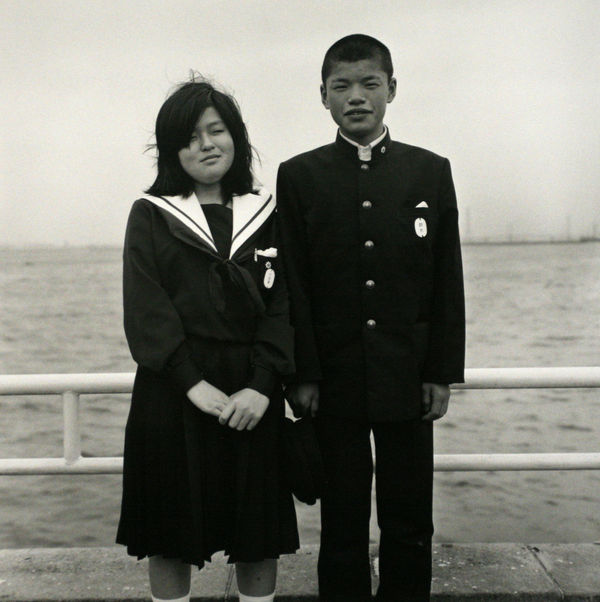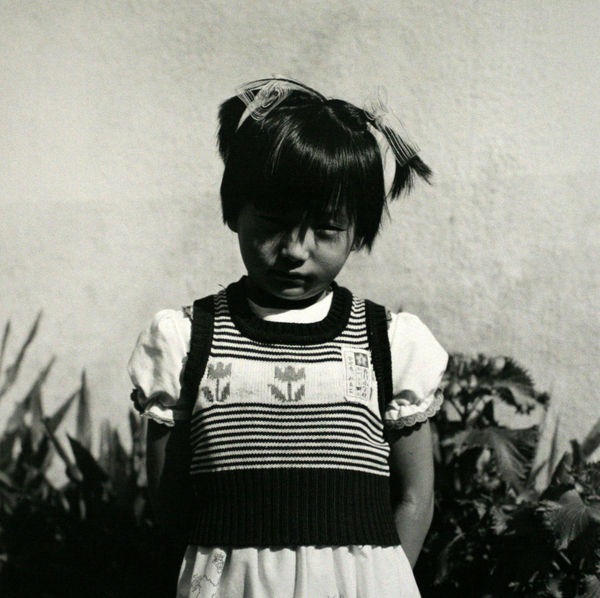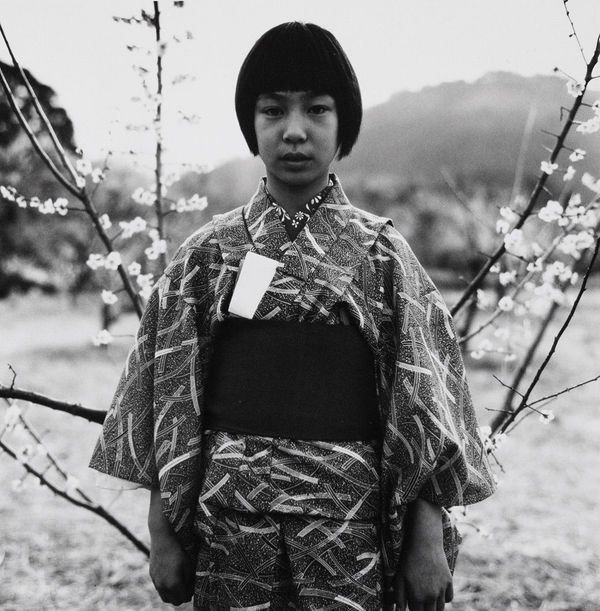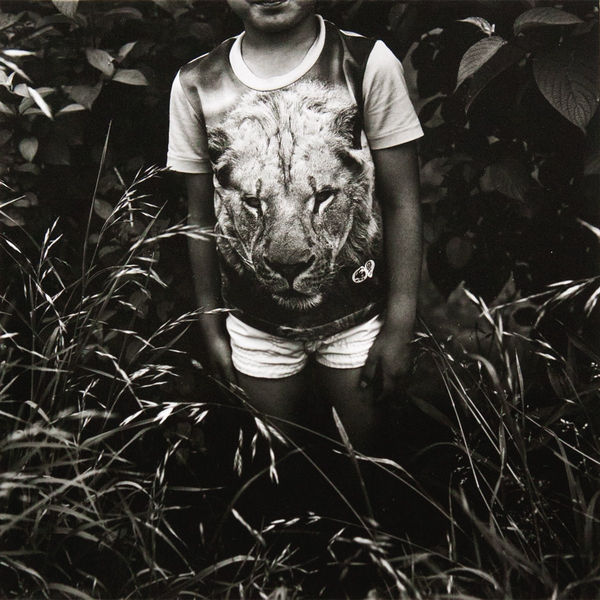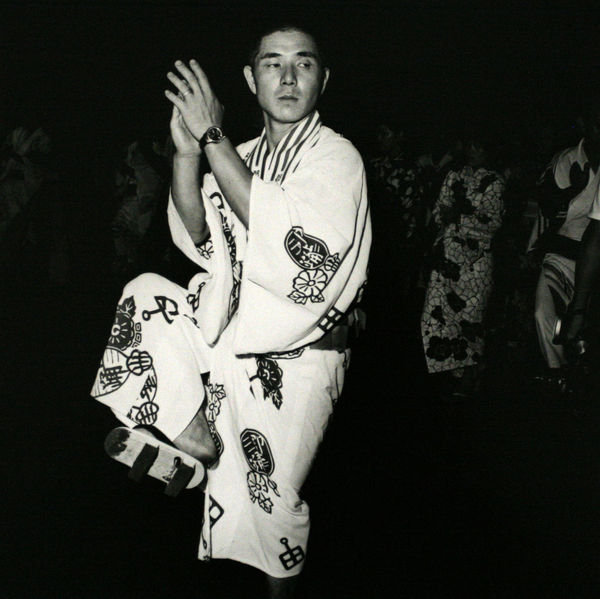Issei Suda
Issei Suda received his first camera, a Rolleiflex, from his father when he entered the Tokyo College of Photography, from which he graduated in 1962. In 1967 Suda began work as the stage and publicity photographer for Tenjo Sajiki, a theatrical troupe directed by poet-playwright Terayama Shuji. The troupe sought to express the mysterious side of everyday life, a theme that Suda continued to pursue after beginning his freelance career in 1971. His work began to appear in photography magazines, earning him early recognition in Japan and abroad.
In his most famous series of work, Fushi Kaden from 1976, Suda succeeded in capturing the extraordinary that exists within the ordinary. He received high praise for these photographs, that direct our gaze towards another world, and ever since he has continued to publish works that focus on familiar landscapes, commonplace festivals or customs, etc. He is ranked, not only in Japan but also abroad, together with other photographers whose style presents a uniquely Japanese development of the personal viewpoint, some of his work receiving attention for being peculiarly subjective, while simultaneously providing a new outlook on the standard images of Japan or Tokyo from an ethnological viewpoint.
Suda has been the recipient of many Japanese awards, among others the Ken Domon Award in 1996. His work has been frequently exhibited not only in Japan, but also in Germany, Austria, Belgium, the U.S., Spain, the Netherlands, China and South Korea. His work is housed in museum collections in Japan, Germany, the U.S. and France. Suda passed away in March 2019.
-
 Untitled, from Landscape with Chimney, c1980
Untitled, from Landscape with Chimney, c1980 -
 Untitled, from Fushi Kaden, c1976
Untitled, from Fushi Kaden, c1976 -
 Untitled, from Fushi Kaden, c1976
Untitled, from Fushi Kaden, c1976 -
 Untitled (from the series: Autumn Candles, c1970
Untitled (from the series: Autumn Candles, c1970 -
 Monogusa Shui, from Oi Tokyo, 1982
Monogusa Shui, from Oi Tokyo, 1982 -
 Shinden, Adachi-ku, (#167, from the series: Human Memory), 1981
Shinden, Adachi-ku, (#167, from the series: Human Memory), 1981 -
 Untitled, from Landscape with Chimney, 1980-1982
Untitled, from Landscape with Chimney, 1980-1982 -
 Untitled, from Landscape with Chimney, 1980-1982
Untitled, from Landscape with Chimney, 1980-1982 -
 Yokote, Akita, from Minyo Sanga, 1979
Yokote, Akita, from Minyo Sanga, 1979 -
 Soma, Fukushima, from Minyo Sanga, 1979
Soma, Fukushima, from Minyo Sanga, 1979 -
 Sado, Niigata, 1979
Sado, Niigata, 1979 -
 Yao, Osaka (from the series: Minyo Sanga), 1978
Yao, Osaka (from the series: Minyo Sanga), 1978 -
 Yushima, Tokyo, from Anonymous Men and Women, 1977
Yushima, Tokyo, from Anonymous Men and Women, 1977 -
 Yanaka, Tokyo, from Anonymous Men and Women, 1977
Yanaka, Tokyo, from Anonymous Men and Women, 1977 -
 Taito, Tokyo (from the series: Anonymous Men and Women), 1977
Taito, Tokyo (from the series: Anonymous Men and Women), 1977 -
 Miuramisaki, Kanagawa, from Fushi Kaden, 1977
Miuramisaki, Kanagawa, from Fushi Kaden, 1977 -
 Yokohama, Yamashita Koen, Harbor Festival, from Fushi Kaden, 1976
Yokohama, Yamashita Koen, Harbor Festival, from Fushi Kaden, 1976 -
 Yamagata, Obanazawa, Hanagase Festival, from Fushi Kaden, 1976
Yamagata, Obanazawa, Hanagase Festival, from Fushi Kaden, 1976 -
 Yamagata, Obanazawa, fromk Fushi kaden, 1976
Yamagata, Obanazawa, fromk Fushi kaden, 1976 -
 Ume Matsuri, Ogose, Saitama, from Fushi Kaden, 1976
Ume Matsuri, Ogose, Saitama, from Fushi Kaden, 1976 -
 Kamakura, Hasekannon, Botan Festival, from Fushi Kaden, 1976
Kamakura, Hasekannon, Botan Festival, from Fushi Kaden, 1976 -
 Ayame matsuri, Mizumoto-Park, Katsushika, Tokyo, from Fushi Kaden, 1976
Ayame matsuri, Mizumoto-Park, Katsushika, Tokyo, from Fushi Kaden, 1976 -
 Untitled (from the series: singing), 1975
Untitled (from the series: singing), 1975 -
 Saitama, Chichibu, Night Festival, from Fushi Kaden, 1975
Saitama, Chichibu, Night Festival, from Fushi Kaden, 1975 -
 Gifugun, Kamiyawata, from Fushi Kaden, 1975
Gifugun, Kamiyawata, from Fushi Kaden, 1975 -
 Gifugun, Kamiyawata, from Fushi Kaden, 1975
Gifugun, Kamiyawata, from Fushi Kaden, 1975 -
 Untitled (from the series: Clipped), 1973
Untitled (from the series: Clipped), 1973 -
 Akita, Oh-u Semishigure 1, from Cicadas Songs in Ou, 1972
Akita, Oh-u Semishigure 1, from Cicadas Songs in Ou, 1972
-
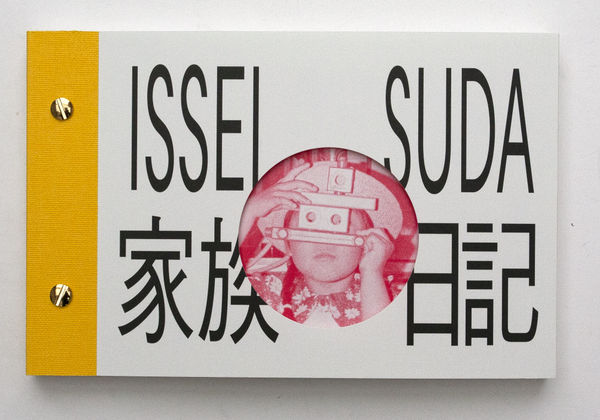
Family Diary - Issei Suda
Suda, Issei , 2021softcover, 176 pagesRead more
Publisher: Chose Commune
Dimensions: 150 × 230 mm -

Kan-nagara - Issei Suda
Issei Suda, 2017hardcover with dust jacket and obi, 128 pagesRead more
Publisher: Place M
Dimensions: 210 x 305 mm -

Looking Back: 10 Years of IBASHO
Exhibition catalogue various artist, 2025softcoverRead more
Publisher: IBASHO
Dimensions: 230 x 240 mm -

Monogusa Shui - Issei Suda
Suda, Issei, 2023hardcover in slipcase, 84 pagesRead more
Publisher: Akio Nagasawa Publishing
Dimensions: 207 × 216 mm
-

#70 Looking back: 10 Years of IBASHO
23 Mar - 18 May 2025We're excited to celebrate a big milestone at IBASHO: 10 years of sharing the beauty of Japanese photography. To mark this special moment, we're hosting a group exhibition “Looking Back:...Read more -

#59 Yōjo - Jeremy Stigter & the IBASHO Collection
3 Jun - 6 Aug 2023IBASHO is delighted to announce the opening of “Yōjo”, an exhibition developed in close collaboration with the Dutch photographer Jeremy Stigter. “Yōjo”, a Japanese concept that can be translated as...Read more -

#46 Hibi: fragments of daily life - Issei Suda
13 May - 6 Jun 2021The second exhibition that will open during the Antwerp Art Weekend is 'Hibi: fragments of daily life' by the Japanese photographer Issei Suda (1940 - 2019). This is in connection...Read more -

#37 初雪 HATSUYUKI - a group exhibition on 'FIRST SNOW'
7 Dec 2019 - 12 Jan 2020A small flake of snow Came floating down Onto my forefinger Onto its tip Heaven's messenger as it were A small flake of snow Arrived floating Melted on my forefinger...Read more
-

#04 Summer Exhibition 2015
2 Jul - 30 Aug 2015After the first three months of the opening of IBASHO we are going to enjoy the Summer and will not have regular opening hours, but we will still open our...Read more -

#01 SHASHIN YO KONNICHIWA (HELLO TO PHOTOGRAPHY)
26 Mar - 30 Apr 2015Shashin yo Sayonara (Bye-bye to Photography) is the title of Daido Moriyama's groundbreaking photo book, in which the master of Japanese contemporary photography breaks out of the boundaries of conventional...Read more



